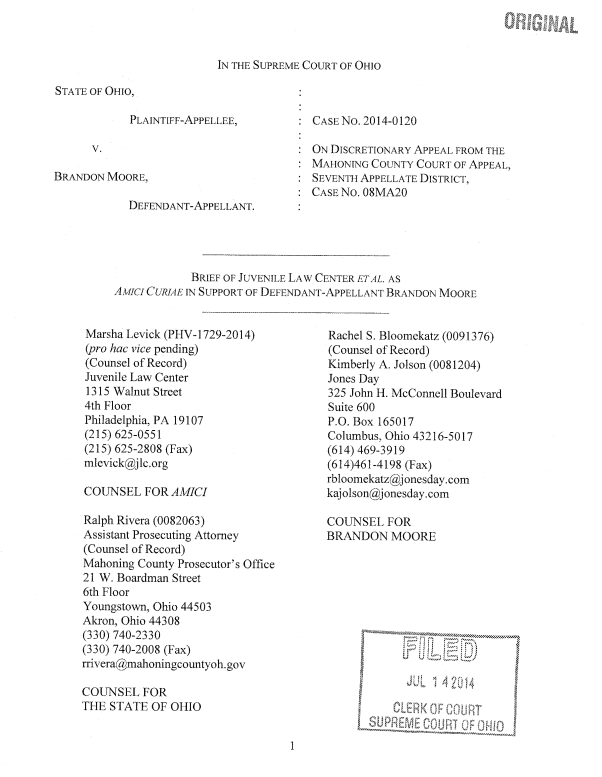
Summary of Argument
In 2010, the U.S. Supreme Court held in Graham v. Florida, 560 U.S. 48 (2010) that life without parole sentences for juvenile offenders committing non-homicide offenses violate the Eighth Amendment's ban on cruel and unusual punishments. Appellant Brandon Moore was convicted of non-homicide offenses that he committed as a juvenile and received a sentence that requires him to serve 92 years before he is parole-eligible. Because Mr. Moore would not be eligible for parole until he reaches the unlikely age of 107, his sentence is the functional equivalent of a life without parole and therefore unconstitutional pursuant to Graham. The majority of states that have considered sentences similar to Mr. Moore's have held that extreme term-of-year sentences that are the functional equivalent of "life without parole" sentences violate Graham. This Court, too, should hold that Appellant's sentence - which guarantees that he will die in prison - violates Graham.
The United States Supreme Court has mandated that sentencers undertake anindividualized analysis for children accused of serious crimes in order to ref.lect our society's evolving standards of decency and to take account of our greater understanding of adolescent development. The Court has found that any child who commits non-homicide offenses must have a meaningful opportunity to be released from prison. Accordingly, Amici respectfully requestthat this Court invalidate Appellant Moore's unconstitutional sentence. This will ensure that Ohio is appropriately applying the United States Supreme Court's decisions on juvenilesentencing and that the prohibition on life without parole sentences for non-homicide offenses is not subverted by semantics.